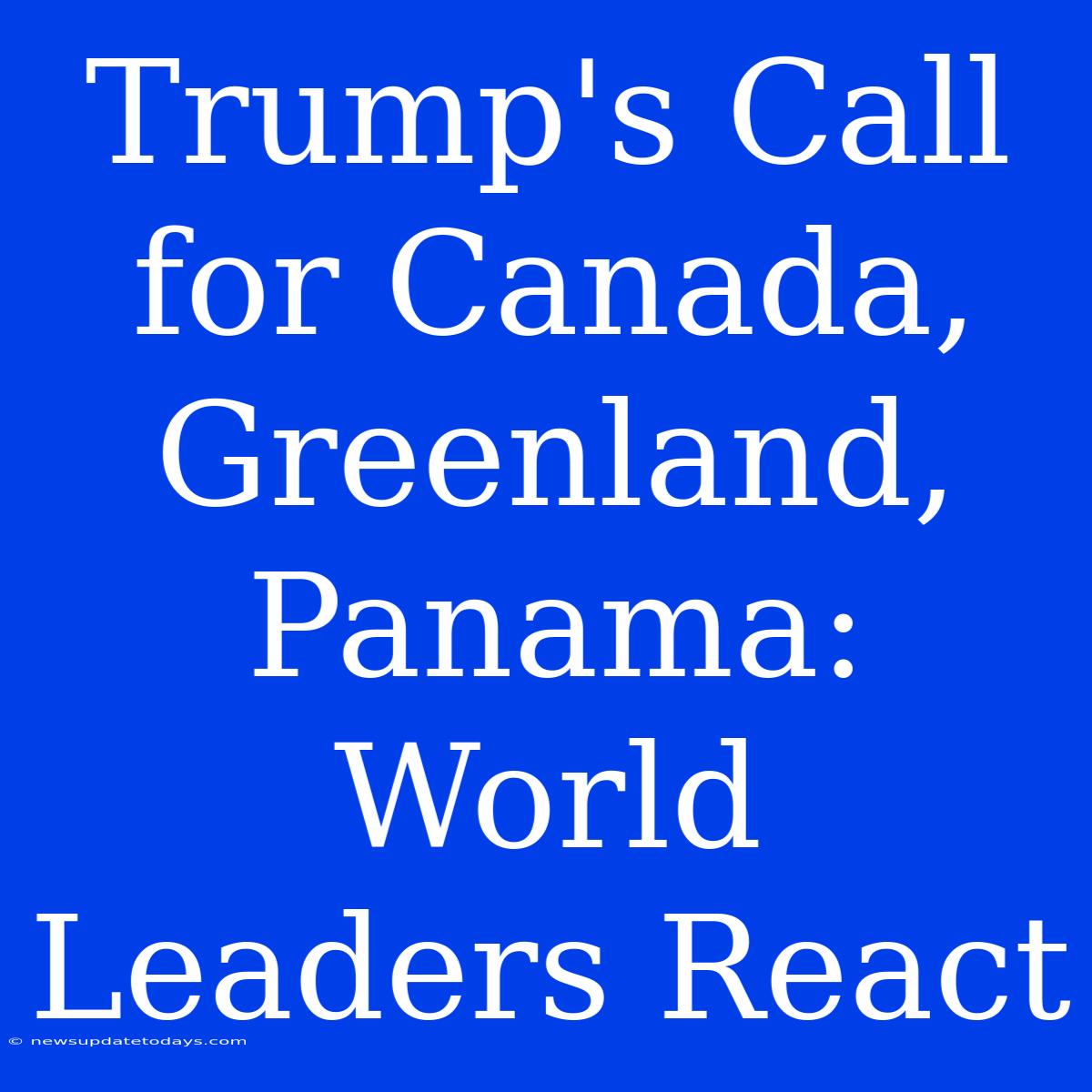Trump's Bold Bids for Canada, Greenland, and Panama: A Global Reaction
Donald Trump's presidency was punctuated by numerous unexpected pronouncements, and his alleged musings about acquiring Canada, Greenland, and Panama certainly rank among the most surprising. While the actual feasibility of such acquisitions was questionable, the sheer audacity of the suggestions sparked widespread international reaction, ranging from amusement to outright condemnation. This article delves into the details of these proposed acquisitions and examines the global response they elicited.
The Proposals: A Summary
While not officially proposed as formal policy, reports surfaced suggesting Trump considered various scenarios involving the acquisition of these territories. The alleged interest in purchasing Greenland sparked a significant diplomatic incident with Denmark, while the idea of acquiring Canada and Panama, though less formally discussed, prompted speculation and concern amongst global leaders. The motivations behind these alleged proposals remained largely unclear, prompting numerous interpretations ranging from strategic land grabs to mere political posturing.
Canada: A North American Giant
The notion of the United States acquiring Canada was met with near-universal derision within Canada. Canadians, fiercely proud of their sovereignty and distinct identity, viewed the suggestion as an insult and a fundamental misunderstanding of their nation. Political leaders across the Canadian spectrum united in rejecting any such proposition. The existing strong trade ties between the two nations, often strained under Trump's administration, were further jeopardized by the very suggestion.
Greenland: A Diplomatic Earthquake
Trump's reported interest in purchasing Greenland caused a far more direct and immediate diplomatic fallout. The Danish government, responsible for Greenland's foreign affairs, responded with swift and firm rejection. The incident highlighted the sensitive nature of Greenland's semi-autonomous status within the Kingdom of Denmark, and underscored the deeply ingrained principle of self-determination for nations. The suggestion was widely seen as a blatant disregard for Danish sovereignty and an attempt at imperialistic expansion.
Panama: A Strategic Crossroads
The prospect of the United States acquiring Panama, given its strategic geopolitical location controlling the Panama Canal, presented a complex scenario. While less explicitly discussed than the Greenland proposal, the potential implications of such a move sparked apprehension in Latin America. Concerns arose about the potential impact on regional stability and the potential for increased US influence within the region.
Global Reactions: A Chorus of Disapproval
The international reaction to Trump's alleged proposals was overwhelmingly negative. The suggestions were widely viewed as a departure from established diplomatic norms, highlighting a disregard for international law and the principle of national sovereignty. Leaders around the world condemned the proposals, many expressing concern over the potential destabilization they could cause. The incident served as a stark reminder of the importance of maintaining respectful diplomatic relations among nations, especially among those with close economic and political ties.
The Legacy of the Proposals
While none of these acquisitions ever came to fruition, the mere contemplation of them left a significant impact on international relations. The episodes demonstrated the unpredictability of Trump's presidency and highlighted the potential for seemingly outlandish pronouncements to generate significant diplomatic consequences. They also served as a reminder of the deep-seated sensitivities surrounding national sovereignty and the importance of maintaining respectful communication between world leaders. The events are likely to continue to be analyzed and debated for years to come, serving as a case study in international relations and the unpredictable nature of geopolitics.

